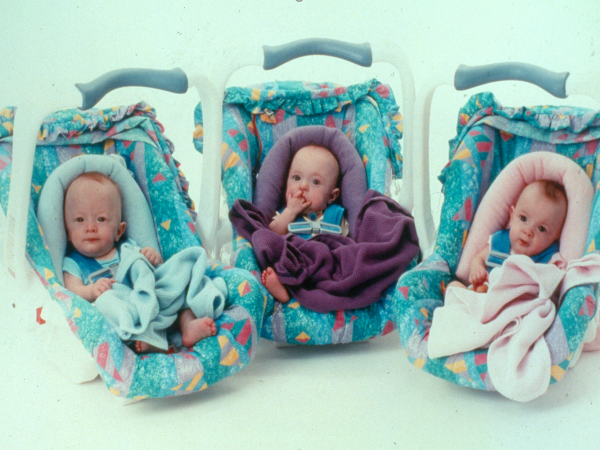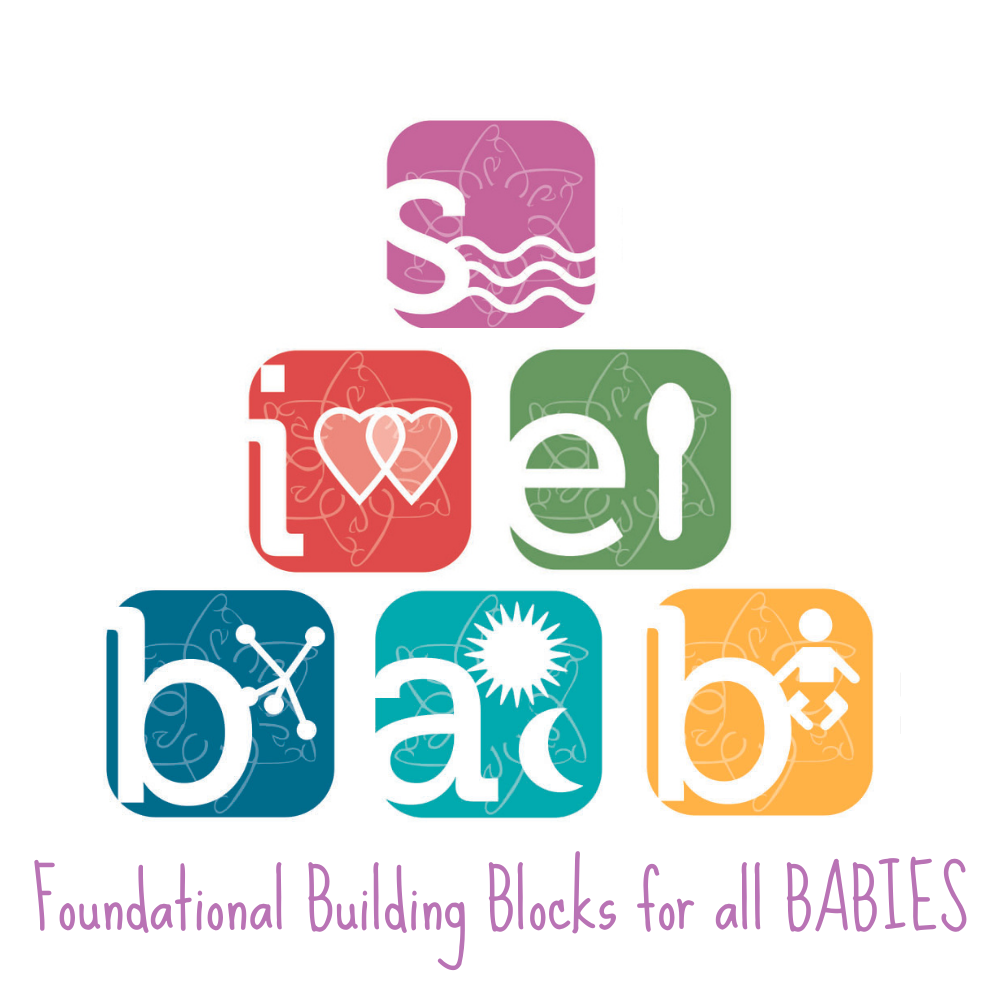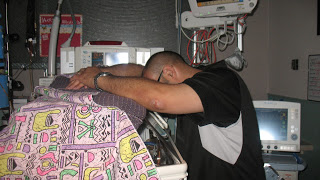M(OTHERS)
Mindfulness, Organization, Thinking, Holding the Baby in Mind, Environmental Adjustments, Reflection, and Self-care


Share These Trainings With Your Colleagues.
Your BABIES Interdisciplinary Faculty:
- Joy Browne, JOY V. BROWNE, PHD, PCNS-BC, IMH-E®
- Petora Manetto-Spratt, PT, DPT, PCS, IMH-E®
- Emily McNeil, LPC, BC-DMT, CIMI, IMH-E (IV)
- Kristin Frank, OTR/L, CIMI
- Jennifer Martin, MS, CCC-SLP
- Jennifer Harrison, MS, CLE, CIMI
- Gail Trujillo, M.Sc., Ph.D (ABD), IMH-E®
- Debra Paul, OTR/L

M(OTHERS)
Overview
The M(OTHERS) Program is a 6-hour class that teaches providers how to support the mental health of caregivers who are raising medically fragile babies. The program teaches providers concrete strategies across 8 domains to enhance mental health and decrease stress in the caregivers with whom they work.
The domains include: Mindfulness, Organization, Thinking, Holding the Baby in Mind, Environmental Adjustments, Reflection, and Self-care.
Teaching includes didactic, reflective, and experiential styles with a strong audio-visual component.
The M(OTHERS) Program may be taken as a part of our BABIES Model Training Cycle or a stand-alone training for providers wanting to learn more about supporting executive functioning and stress management in caregivers of fragile infants.
Goals
The goal of the M(OTHERS) Program is to provide practitioners tools to support caregiver mental health by exploring strategies that enhance executive functioning, coping skills for stress and to provide tools for mindfulness, self-care and reflective parenting.
There is a secondary goal to help providers implement some of these strategies to support their own stress management as they work to support babies and families with special health care needs.
Who Benefits
Professionals and Caregivers
Are You Ready To Start?
“At first glance it may appear too hard. Look again. Always look again.”
Mary Anne Radmacher
your Learning Path FORWARD - quick overview of courses for after discharge professionals
FIRST Steps for BABIES Training: Learn foundational elements of newborn and young infant development using the BABIES and PreSTEPS Model
2 to 2 1/2 Day Training (16-20 Hours)
The FIRST Steps for BABIES Training is a prerequisite to the other trainings programs. This foundational training is the first step in the learning program for interdisciplinary early intervention and health care professionals.
You will learn about the foundations of newborn and young infant development and the progression of the caregiver-infant relationship as the infant develops. These foundational aspects of development yield expertise in support of newborns and young infants with health care needs, developmental disabilities and with those babies who have been deemed categorically eligible for Part C services.
This training focuses on evidence-based approaches to assessment and intervention for an infant’s development of:
B-ody Function
A-rousal and Sleep
B-ody Movement
I-nteraction with others
E-ating
S-oothing
AND
Support for families’ focuses on the evidence-based best practices of:
Pre-dictability and continuity
S-leep and arousal organization
T-iming and pacing
E-nvironmental modifications
P-ositioning and handling
S-oothing supports
The pre-requisite for this training is the FIRST Steps for BABIES 2 1/2-day training.
Time Commitment – 1 year
The goal of the Learning Collaborative is to deepen the practices of the participants and expand their abilities to work with premature and medically fragile babies and their families. Another goal is to develop a higher level of competence in the BABIES and PreSTEPS Model so as to become a confident practitioner in providing neurodevelopmental family-centered care founded on infant mental health principles to families of fragile infants.
The BABIES Learning Collaborative is a year-long training that allows participants to deep-dive into the BABIES and Pre-STEPS Model of family-centered developmental care. Participants bring their own rich, clinical experiences to the Learning Collaborative, as they learn more about the 6 domains. Each domain is studied for 2 months, with a mid-year and final assessment to check skills development.
Participants are required to conduct live observations of infants. They are also expected to bring case studies to each session.
The training is approximately 51 hours. The teaching is a combination of didactic, reflective, and experiential, with a strong audio-visual component.
Participants receive a manual for each domain, as well as observation forms to practice using the Model in sessions.
The Reflective Mentoring Program is offered to professionals who have completed the year-long BABIES and Pre-STEPS Learning Collaborative. It consists of three 2-hour follow up sessions over a 6 month period. During the sessions participants receive reflective consultation regarding clinical challenges with fragile infants and families, as well as support for continued implementation of the BABIES and PreSTEPS Model. Current research will be discussed, as well as long-term planning for participation in the WONDERbabies community.
The goal of the Reflective Mentoring Program is to provide continued support to professionals after they have participated in the BABIES Learning Collaborative.
Faculty: Emily McNeil, LPC, BC,-DMT, IMH-E Clinical Mentor
Suggested Resource:
If you’d like to learn more about reflective consultation, this link may be helpful- https://mi-aimh.org/wp-content/uploads/2019/01/Best-Practice-Guidelines-for-Reflective-Supervision-and-Consultation.pdf
Overview
Babies Adaptive Behavior Inventory (BABI): The BABI Observation Template provides a comprehensive view of the adaptive functioning of the newborn and young infant.
Information from the observation and the structured conversation with the primary caregiver provides evaluators, service coordinators, early intervention providers and other community professionals with valuable information regarding infant adaptive function during formative early months of the infant’s life.
The Fragile Infant Feeding Institute is a four and a half day intensive study of feeding and nutrition for infants with special needs. The interprofessional institute focuses on hospital and community feeding practices and encourages close interaction between the faculty and participants.
The goal of the M(OTHERS) Program is to provide practitioners tools to support caregiver mental health by exploring strategies that enhance executive functioning, coping skills for stress and to provide tools for mindfulness, self-care and reflective parenting. There is a secondary goal to help providers implement some of these strategies to support their own stress management as they work to support babies and families with special health care needs.
The M(OTHERS) Program is a 6-hour class that teaches providers how to support the mental health of caregivers who are raising medically fragile babies. The program teaches providers concrete strategies across 8 domains to enhance mental health and decrease stress in the caregivers with whom they work.
The domains include: Mindfulness, Organization, Thinking, Holding the Baby in Mind, Environmental Adjustments, Reflection, and Self-care.
Teaching includes didactic, reflective, and experiential styles with a strong audio-visual component.
The M(OTHERS) Program may be taken as a part of our BABIES Model Training Cycle or a stand-alone training for providers wanting to learn more about supporting executive functioning and stress management in caregivers of fragile infants.
WONDERbabies Offers Additional
Resources to Use in Your Practice
The WONDERbabies Caregiver Guide was developed utilizing information from both the BABIES domains of development as well as the PreSTEPS model of caregiver contributions to supporting infant development. It is intended to inform caregivers in what to expect their baby to do, ways to support their baby, things to look for along the way as well as reflective questions to ask themselves across the six BABIES developmental domains. It also provides “red flags” to watch for in both babies and parents/caregivers, along with a host of resources to connect with.
Included with all purchases are directions for the community provider on how to best use the Guide with primary caregivers.
Who this is for: Caregivers of fragile newborns and young infants
Goal: To provide information to caregivers about developmental building blocks for fragile newborns and young infants
Faculty: Kristin Frank, OTR, CIMI and Jennifer Harrrison, MS, CLE, CIMI
To order the Caregiver/Family Guide, please contact us here.
The “Getting to Know Your Baby” is a 35-page booklet with photographs of typical communication behaviors of the developing preterm and term newborn. Used to help primary caregivers understand the approach and avoidance behaviors of babies, it sets the stage for how to support babies when they are overloaded and to promote optimal development. Based on Als’ Synactive Theory, it covers observable autonomic, motor, state, interaction and self regulation behaviors that can guide care. It is available in English, Spanish, French and Arabic.
To order the “Getting to Know You Guide” please contact us here.

- wonderbabies@yahoo.com
- Worldwide Availability

